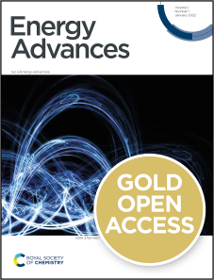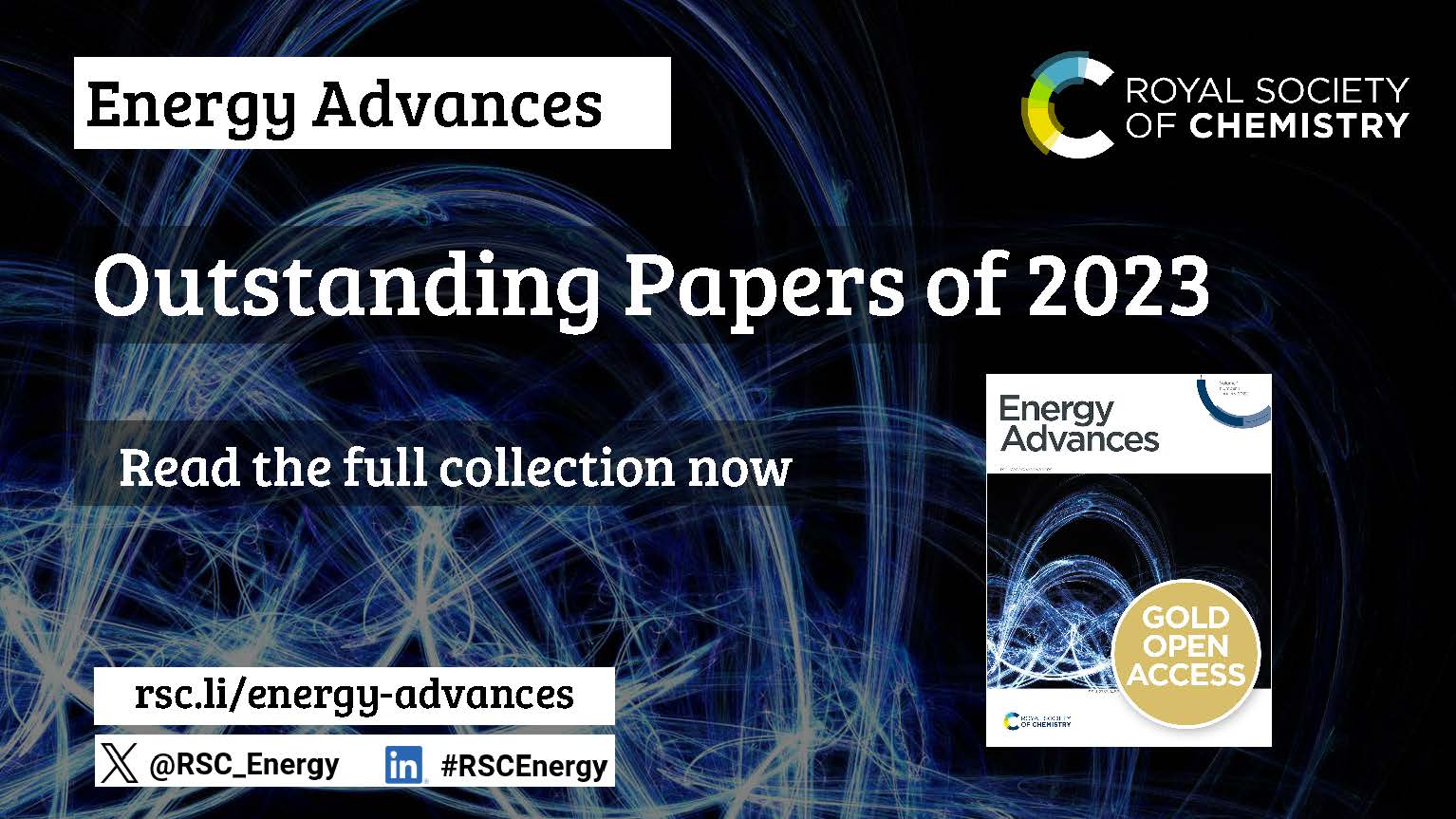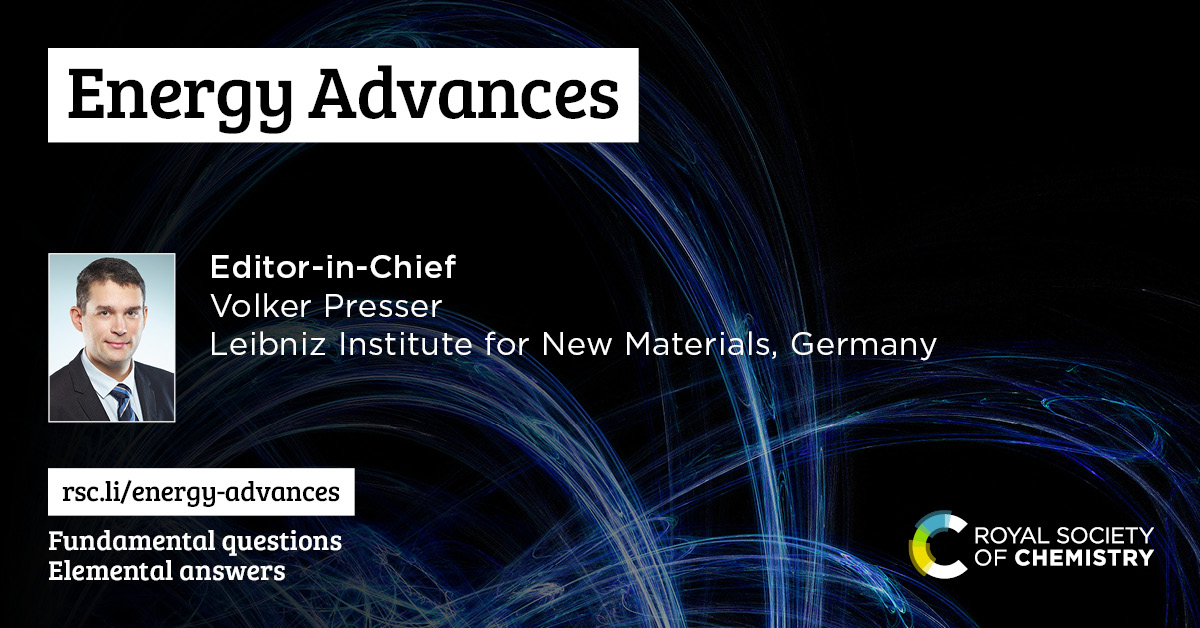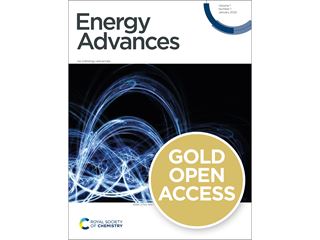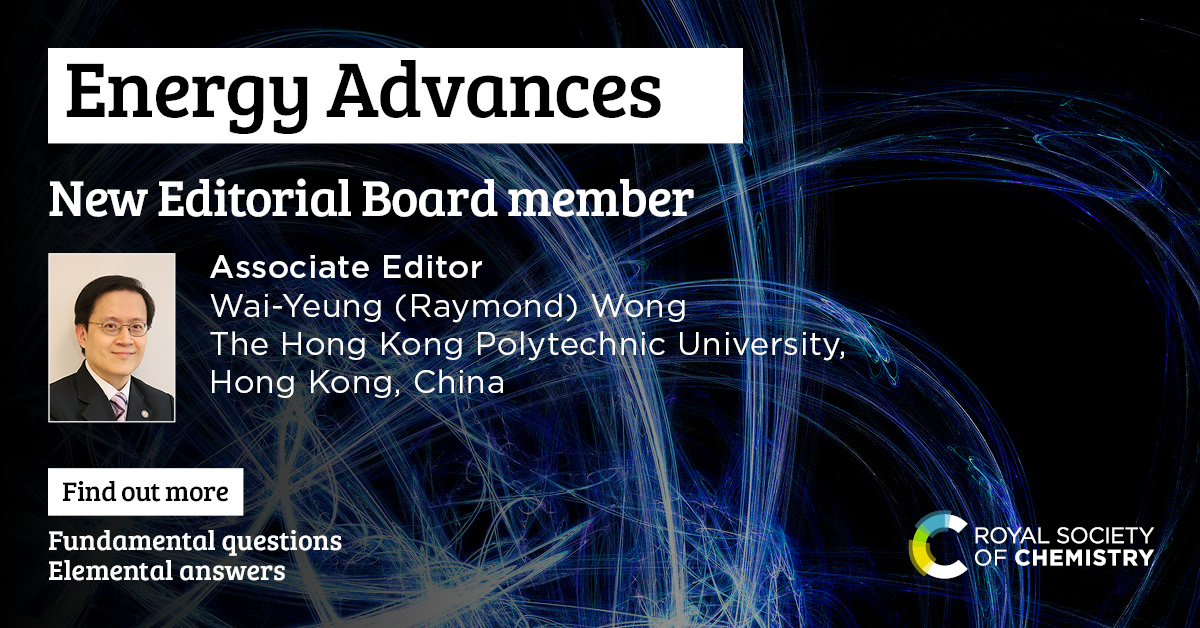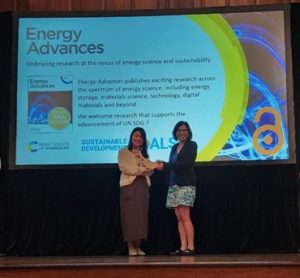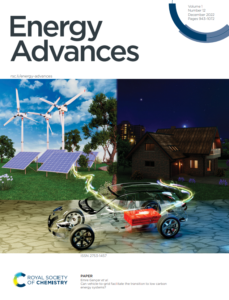We are delighted to announce that the Energy Advances themed issue on Blue and Green Hydrogen Production & Storage is now online.
Blue and green hydrogen production and storage are essential components of the broader efforts to achieve a sustainable, low-carbon energy transition, and in reaching net-zero emissions targets.
This themed collection includes papers which report new developments in:
- photoelectrochemical water splitting
- steam methane reforming
- hydrogen storage
- and the hydrogen economy
Read the full issue online: https://rsc.li/blue-green-hydrogen
It includes:
Simulations for charge transfer and photocurrent calculations using hematite for green hydrogen production
Nadav Snir and Maytal Caspary Toroker
Energy Adv., 2024,3, 451-458
Quantifying global costs of reliable green hydrogen
A novel technological blue hydrogen production process: industrial sorption enhanced autothermal membrane (ISEAM)
Chidozie Eluwah, Paul S. Fennell, Christopher J. Tighe and Ahmed Al Dawood
Energy Adv., 2023,2, 1476-1494
Silicon atom doping in heterotrimetallic sulfides for non-noble metal alkaline water electrolysis
Hydrogen and oxygen evolution reactions on single atom catalysts stabilized by a covalent organic framework
Ilaria Barlocco, Giovanni Di Liberto and Gianfranco Pacchioni
Energy Adv., 2023,2, 1022-1029
A review on the recent advances in the design and structure–activity relationship of TiO2-based photocatalysts for solar hydrogen production
Sunesh S. Mani, Sivaraj Rajendran, Thomas Mathew and Chinnakonda S. Gopinath
Energy Adv., 2024,3, 1472-1504
A review on the advancements of graphitic carbon nitride-based photoelectrodes for photoelectrochemical water splitting
Merin Joseph, Mohit Kumar, Suja Haridas, Challapalli Subrahmanyam and Sebastian Nybin Remello
Energy Adv., 2024,3, 30-59
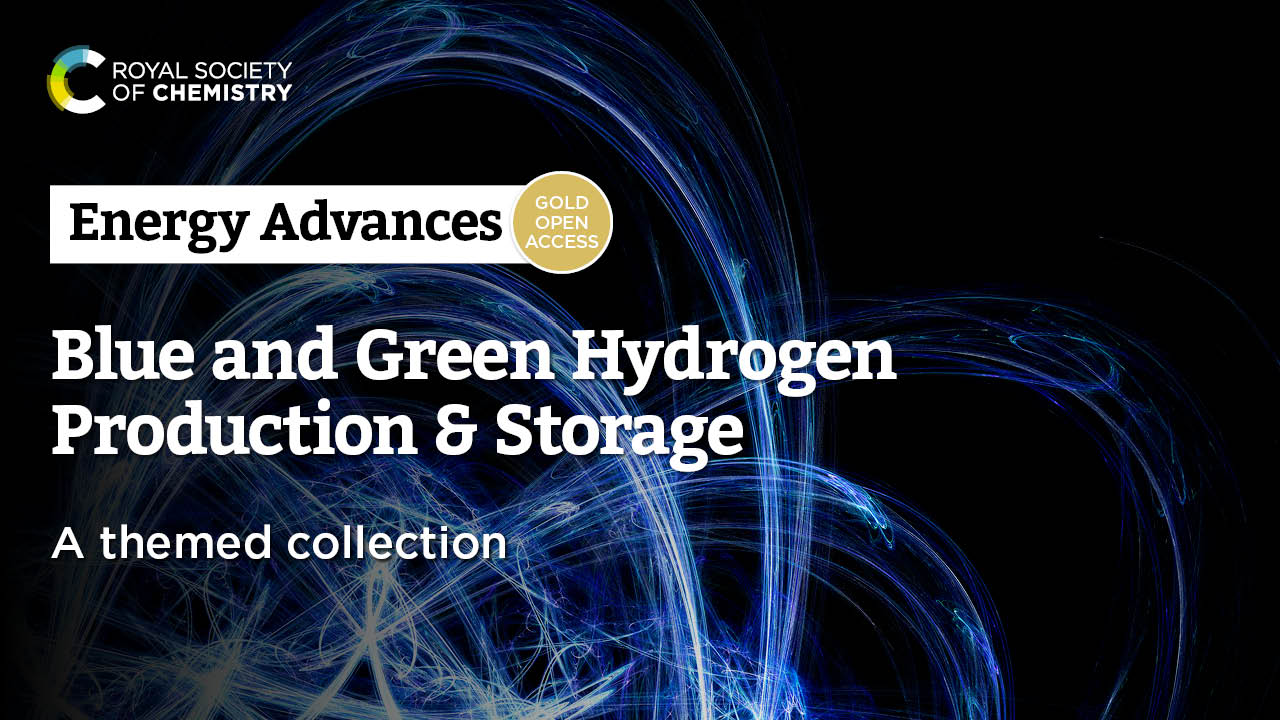
We hope that you enjoy reading this collection of articles. Please get in touch (energyadvances-rsc@rsc.org) if you have any questions about this themed collection or want to contribute to the journal.


